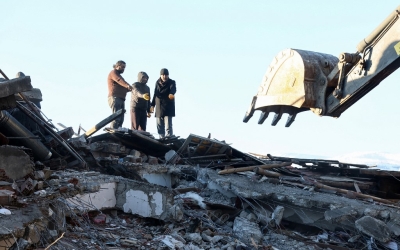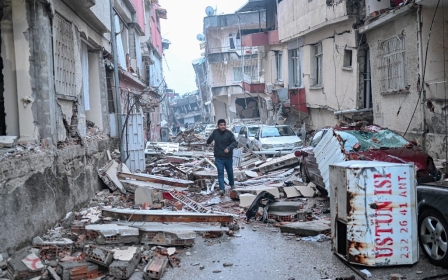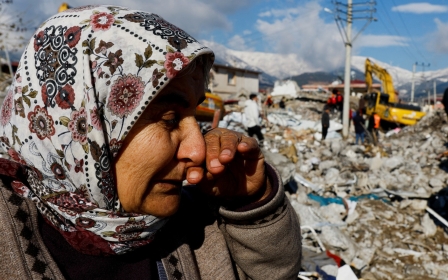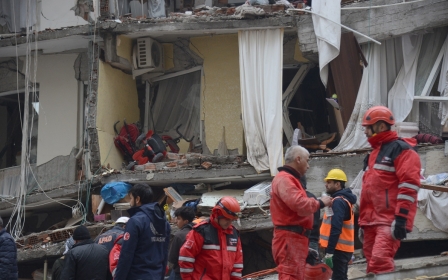Turkey's stock exchange suspends trading after earthquake losses

Turkey's stock exchange suspended trading on Wednesday for the first time in 24 years following the deadly earthquakes that put the benchmark BIST index into free fall.
Borsa Istanbul stock exchange said that it would resume trading on 16 February, as advocated by many experts.
The benchmark index lost 16 percent this week after twin quakes rocked southern Turkey on Monday, killing more than 11,000 people so far in Turkey and neighbouring Syria.
The stock market was closed for a week in 1999 after a strong earthquake hit Izmit's Golcuk, killing more than 17,000 people.
When trading began on Wednesday morning, the stock market immediately posted a seven percent loss. Two circuit breakers couldn’t stop the fall and trading was completely halted around 11am local time.
New MEE newsletter: Jerusalem Dispatch
Sign up to get the latest insights and analysis on Israel-Palestine, alongside Turkey Unpacked and other MEE newsletters
Borsa Istanbul also added that it cancelled all trading transactions that occurred on 8 February to prevent further loss of savings.
Some investors have campaigned on social media for the cancellation of trading since Sunday.
Analysts say many investors posted huge losses since Friday but some profited through five cement companies which went up by over 20 percent until Wednesday. One of the companies, Nuh Cimento, was up 31 percent by the time trading was suspended.
Economic losses
Ismail Tatlioglu, an opposition MP from the Good Party (IYI), alleged on Wednesday that the market had been kept open for some people to sell their stocks before it became too late.
“Shame on you,” he said. “They only thought to close the stock market on the third day of the disaster.”
A trader with 35 years of experience, speaking anonymously to Middle East Eye on Tuesday, said the authorities should have closed the stock exchange for a while to protect investors and stop opportunistic trading.
“However, if you keep it open, there is nothing wrong with investing in winning stock to preserve your savings,” the trader said. “You have to keep the markets on and running to hedge your risks. This is totally rational.”
Data from Turkey's Central Registry Agency (MKK) indicates that 10 percent of all stock exchange investors, more than 381,000 people, live in the 10 provinces impacted by the Monday earthquakes, which are home to a total of 13.42 million people.
Reconstruction in those provinces will require billions of dollars in short, medium and long-term investments.
Three economists contacted by Reuters calculated that the effect of the earthquake on Turkey’s growth would be a loss of between 0.6 percent to 2 percent.
Economists based their calculations on a scenario where production is disrupted by 50 percent and this decrease is compensated for in six to 12 months. An official said that this year's growth may be 1-2 points lower than initial estimates due to the earthquake.
Geophysics engineering professor Ahmet Ercan estimated that economic losses caused by the earthquakes could be between $35bn to $5obn. Independent disaster risk firm Risklayer put the losses at $20bn.
Middle East Eye delivers independent and unrivalled coverage and analysis of the Middle East, North Africa and beyond. To learn more about republishing this content and the associated fees, please fill out this form. More about MEE can be found here.





